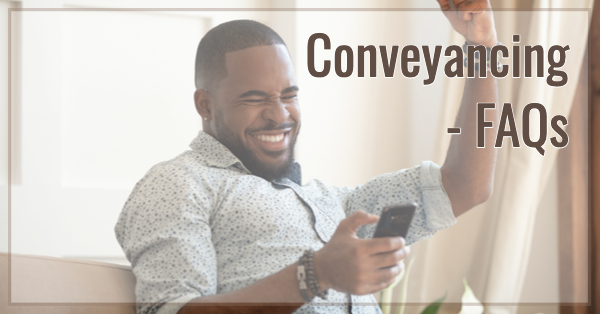We still receive a lot of questions about conveyancing.Here at Conveyancing Store, we are here to discuss any queries you may have. Our board of expert solicitors and conveyancers are willing to share our knowledge and help you through the conveyancing process. Compare Solicitors fees here.
Here are some questions we get asked on a regular basis:
How Long Does Conveyancing Take?
The answer to this question will vary from sale to sale but it is always worth looking into when you compare solicitors fees. However, the general consensus is that residential conveyancing will normally take between 6 to 12 weeks in a standard purchase/sale. The amount of time can be longer or shorter though, depending on the individual circumstances of the seller or buyer.
It’s difficult for any conveyancer to offer an exact time scale as to how long the transaction will take. Many factors can affect the length of the process. The time it takes will also depend on the length of time required by conveyancers to acquire all the correct documents from other conveyancing solicitors.
If you are in a property chain, the conveyancing process will take longer than if you’re not. If another transaction in the chain is experiencing delays, then this will slow down your conveyancing process too.
Other hold can include:
- Survey Results – Your property survey could return adverse results which will alter things. It will take extra time to negotiate a new offer, get further expert advice or pull out of the purchase.
- Mortgage Delays – If everything is in place but you’re still waiting for your mortgage offer to be issued, this can delay the conveyancing process. The same goes for if your mortgage offer has expired. Mortgage offers will usually last between 3 and 6 months.
- Delay In Search Results – Your conveyancer will organise property searches from the relevant authorities. Depending on how busy the local authority is, searches could take anywhere between a few days and a few weeks.
Compare solicitors fees Today. We ensure all our quotes are from efficient property lawyers to ensure a smooth and quick completion. Use our conveyancing calculator and get the best conveyancers fees now. All our quotes are like for like and include all fees and disbursements.
What Are Searches And Do I Need Them?
The role of property searches is to make sure that homebuyers have all the facts about a property before they buy it and do not find out about serious problems afterwards when it is too late. It is normal practice for us to order searches on your behalf from a variety of sources.
Searches will include information held by your local authority on a variety of matters like planning applications and road information; environmental search company data on issues such as ground movement, contaminated land and flooding; water company information about mains supplies, pipe work and drains. There may also be specialist searches on coal mining, chancel repair liabilities for the local church roof, a new housing development two miles away that will stretch local infrastructure
There may also be restrictions that your mortgage lender will apply in respect of certain issues or risks. This may cause a problem with the purchase. For example, if a property is in an area with a high flood risk, it will limit the ability to obtain buildings and contents insurance which is always a condition of lending.
How Long Does It Take To Exchange Contracts?
Contracts are exchanged when a Seller and a buyer are about to commit themselves legally to the transaction – “the point of no return”. All searches and enquiries must be carried out. The mortgage offer received (if applicable) prior to committing yourself to an exchange of contracts.
If you are taking out a mortgage, we will also require your full mortgage offer from your mortgage company before contracts are exchanged. When selling property, we will not exchange contracts unless you authorise us to do so and are able to complete on the completion date.To syncronise the sale of your property with another purchase we will only exchange contracts on your sale when you have everything you need on your related purchase (i.e. search results, mortgage offer and replies to all pre-contract enquiries).
What Is The Difference Between Leasehold And Freehold Properties?
When you buy a freehold property you also buy the land on which it is built. With a Leasehold property, you own the property for a fixed term, but you do not own the land. You would usually pay an annual ground rent to the Freeholder and at the end of the term, the land reverts back to the Freeholder. Always mention to your conveyancing professional if you are buying a leasehold property when you compare solicitors fees.
When Do I Need To Get Building Insurance?
Under most Contracts, the purchaser is liable to insure the building from exchange of Contracts. Therefore, you will need to ensure that the insurance policy can begin immediately upon exchange.
Compare Solicitors Fees
If you are looking for quality conveyancing services and a conveyancer, compare solicitors fees here and find an excellent and efficient service, ensuring your property transaction is completed with expert legal advice. Save Hundreds With Our Fast, Free And No Obligation Conveyance Quotes. No Hidden Fees, Get Moving Today.


